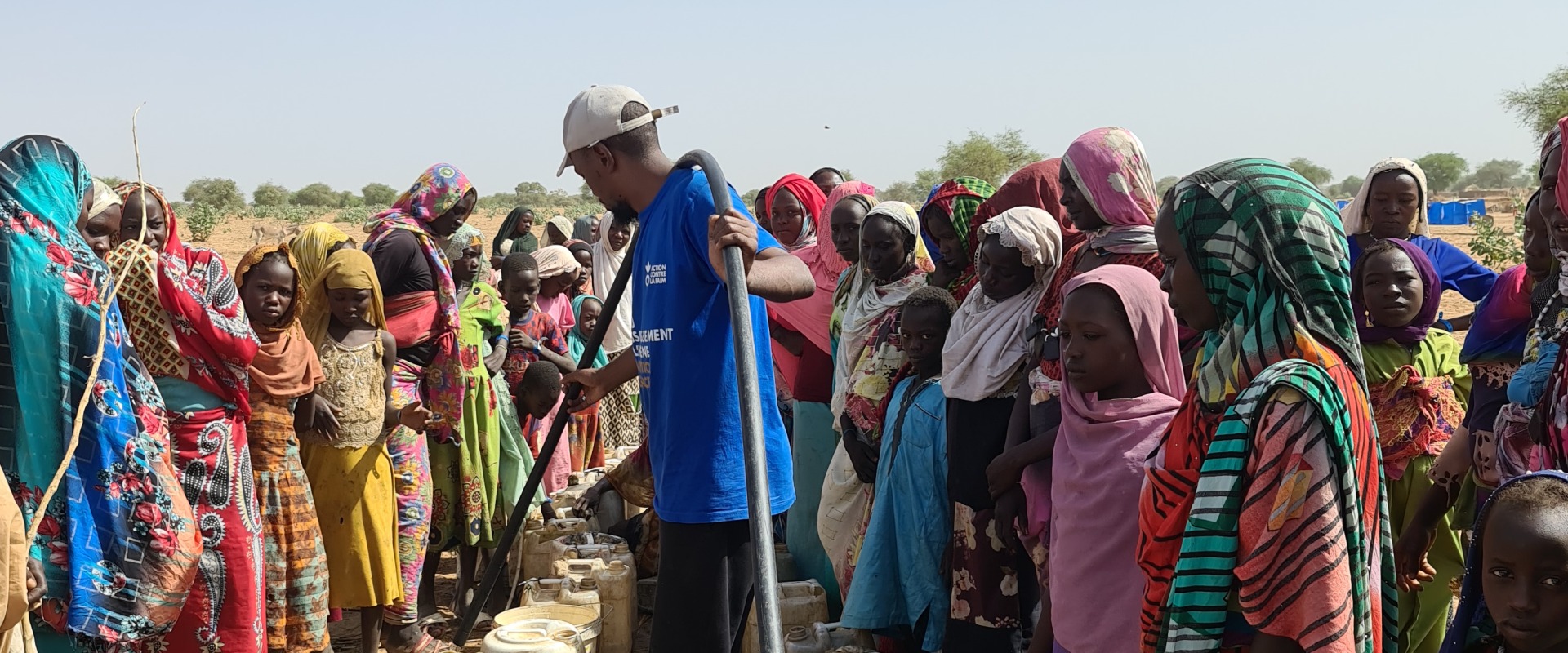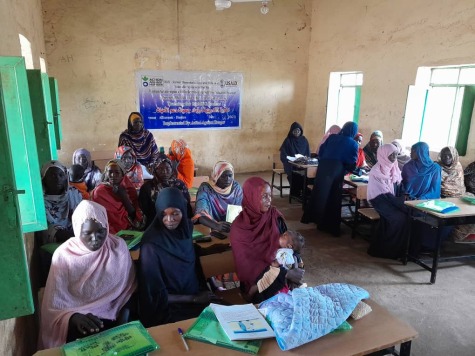
GIVE THIS RAMADAN

Conflict disrupts treatment for more than 50,000 malnourished children in Sudan
This week marks two months of conflict and escalating violence in Sudan. Clashes between the Sudanese Armed Forces (SAF) and the Rapid Support Forces (RSF) continue in Khartoum, Darfur, and several areas of the country. More than 1.8 million people have been forced to flee their homes, and the hunger crisis grows more severe each day.
“Even those who have some money have no access to food,” says Samson Wolderufael, Action Against Hunger’s Nutrition and Health Coordinator in Sudan. “Markets are closed. Many agricultural activities have been interrupted just as the planting season begins in Sudan. Banks have collapsed, prices have doubled, movement and roads are unsafe. All of this is affecting the ability of families to access food.”
Across Sudan, 48 million people have been impacted by this crisis. Children, women, the elderly, people living with disabilities, displaced people, and those with chronic diseases are the most vulnerable to hunger. All of them urgently need access to food and dietary supplements, including ready-to-use therapeutic food, which is used to treat severely malnourished children.
“More than 50,000 children in treatment programs for severe acute malnutrition have had their treatment interrupted because of the conflict,” says Wolderufael. “Action Against Hunger has resumed therapeutic food distributions in White Nile, one of the states with the highest presence of internally displaced people, and in Blue Nile.”

People in Sudan have no guaranteed access to health care. Health centers are not functioning properly, and most have been damaged or looted. Sixty-seven percent of hospitals near areas with active fighting are not functioning, according to UN data. Even before the conflict, approximately three million children under five suffered from malnutrition each year in Sudan. Now, children face a growing number of severe and deadly health issues including malnutrition, pneumonia, acute watery diarrhea, cholera, malaria, and other illnesses.
Humanitarian supplies, officers, and staff are under threat, putting civilians and their access to services at even further risk. At least 162 humanitarian vehicles have been stolen and 61 offices and 57 warehouses have been looted.
When Action Against Hunger’s office in the Zalingei area in Central Darfur was recently looted, medicines, nutrition treatments, computers, and other supplies were stolen, limiting our ability to respond to the crisis and provide for communities in desperate need.
“This practice is common in conflict zones. We are experiencing it again in Sudan. Humanitarian workers are clearly not being respected,” says Jody Paulson Cormack, Global Security Focal Point for Action Against Hunger. After several failed ceasefires, “there seems to be no sign that humanitarian aid will be allowed safely into areas of conflict. All the organizations are demanding that we be allowed to work and reach all people in need. There have been small moments when we have been able to transport food and medicine to some areas, but it is not enough compared to the growing needs.”
Millions of families depend on humanitarian assistance during this conflict. Action Against Hunger’s teams in Sudan are ready to scale up our response to meet increasing needs, but – as the dangers grow for humanitarian workers – we demand that international humanitarian laws be upheld. Aid workers and supplies must be guaranteed safe access to people in need.
Join our community of supporters passionate about ending world hunger.